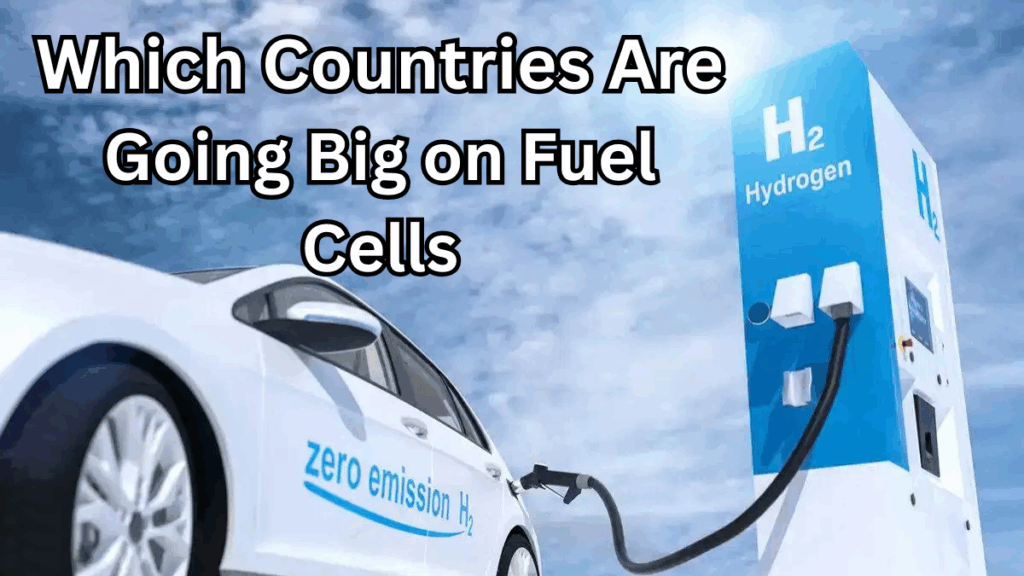As the world races toward cleaner, greener transportation, hydrogen vehicles in 2025 are shaping up to be more than just a niche innovation—they’re becoming a global movement. With fuel cell tech advancing and governments stepping up support, hydrogen-powered cars are quickly gaining momentum as viable eco cars.
Let’s take a closer look at which countries are making bold strides in rolling out hydrogen car models and building infrastructure to support this cleaner future.

Why Hydrogen? The Power Behind the Fuel
Unlike battery electric vehicles (BEVs), hydrogen vehicles use fuel cell tech to convert hydrogen gas into electricity. The only byproduct? Water vapor.
Key Benefits of Hydrogen Vehicles:
-
Zero emissions – just water comes out of the tailpipe.
-
Fast refueling – takes just 3–5 minutes, similar to gasoline.
-
Longer range – better suited for long-haul travel and commercial use.
-
Less battery dependency – no long charging hours or grid overload.
Countries Leading the Hydrogen Vehicle Revolution in 2025
The adoption of hydrogen car models varies globally, but several nations are emerging as trailblazers in pushing the fuel cell tech frontier.
Global Hydrogen Leaders Table
| Country | Hydrogen Strategy | 2025 Goals |
|---|---|---|
| Japan | Pioneer in fuel cell vehicle R&D; home of Toyota Mirai | 200+ hydrogen stations; mass production of eco cars |
| South Korea | Hyundai pushing hydrogen trucks & sedans | 80,000 hydrogen cars on roads by 2025 |
| Germany | Investing €9B in hydrogen infrastructure | Europe’s largest hydrogen refueling network |
| China | Focused on commercial hydrogen fleets | 50,000 fuel cell vehicles operational by 2025 |
| United States | California leading with subsidies and station expansion | 70+ public stations; new hydrogen vehicle rollouts |
| Australia | Strong export & domestic hydrogen development | Growing hydrogen corridor between key cities |
Not Just Cars: Hydrogen for Commercial Transport
Hydrogen isn’t just powering sleek sedans. It’s also revolutionizing public transport, logistics, and heavy industry.
Applications Beyond Passenger Cars:
-
Buses – Quiet and clean, perfect for urban use.
-
Freight Trucks – Hydrogen’s long range is ideal for long-haul trucking.
-
Trains – Zero-emission trains already operate in Germany and the UK.
-
Ships – Ports and vessels are testing hydrogen as a clean alternative to diesel.
Emerging Hydrogen Car Models in 2025
Several automakers are betting big on hydrogen vehicles in 2025, expanding their lineup of futuristic, eco-conscious rides.
Popular Hydrogen Car Models to Watch:
-
Toyota Mirai (Gen 2) – Sleeker design, better range, and more affordable.
-
Hyundai NEXO – Stylish SUV with advanced driver-assist features.
-
Honda CR-V FCEV – New hydrogen-powered SUV hitting U.S. roads in 2025.
-
BMW iX5 Hydrogen – Luxury performance meets clean driving.
These eco cars promise strong performance with zero emissions, giving both the environment and drivers something to smile about.
The Road Ahead: Challenges & Opportunities
While there’s undeniable excitement about fuel cell tech, there are hurdles too.
Challenges:
-
Limited refueling stations
-
High cost of hydrogen production
-
Consumer awareness and trust
Opportunities:
-
Green hydrogen from renewable energy
-
Public-private partnerships
-
Government incentives and subsidies
FAQs
1. What makes hydrogen cars different from electric cars?
Hydrogen cars use fuel cell tech to produce electricity on the go, while EVs store electricity in batteries. Refueling hydrogen vehicles is faster and more range-friendly.
2. Are hydrogen vehicles safe to drive?
Yes. Hydrogen tanks are rigorously tested and designed with multiple safety layers. They are as safe as gasoline or EVs under normal use.
3. Will hydrogen vehicles in 2025 be affordable?
Prices are expected to drop as hydrogen car models become more common and infrastructure improves. Government subsidies can also ease the initial cost.
4. Where can I refuel a hydrogen car?
Refueling stations are mostly found in countries investing heavily in hydrogen infrastructure, like Japan, Germany, and the U.S. (California). More stations are expected in 2025.
Final Thoughts: Is Hydrogen the Future?
While electric vehicles continue to dominate headlines, hydrogen vehicles in 2025 are quietly carving out their own path. For long-range, commercial, and heavy-duty transport, fuel cell tech may just be the breakthrough we’ve been waiting for.
If we play our cards right, eco cars powered by hydrogen could soon be parked in every garage.
Click here to learn more
